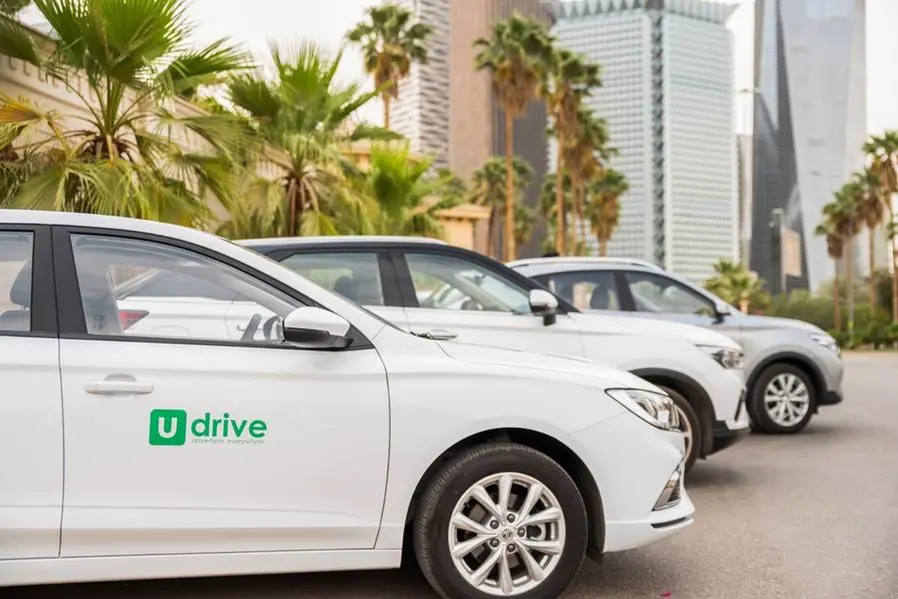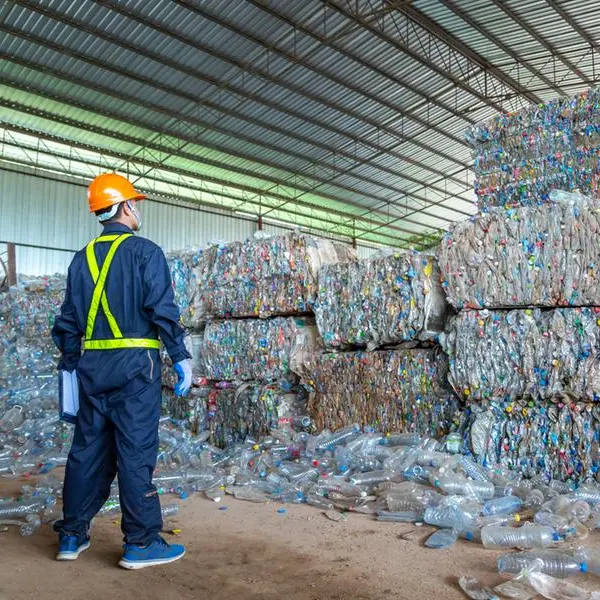PHOTO
Prior to 2017, tourists and residents seeking to rent cars in Dubai had little choice but to pay hefty deposits and sign extended paperwork with a car rental agency before they could take to the streets. The late 2016 launch of Udrive, a “per-minute” and daily car-sharing service, created a fully digitised car rental option in the market that involved minimal friction and no deposits.
Now, it’s expanding to Saudi Arabia.


Starting with a fleet of 200 cars in Riyadh in August of this year, Udrive is planning to expand its fleet in the Saudi capital to 600 cars by the end of 2022.
“We’re running an already-existing and profitable business model which is the car rental business model,” explains Nicholas Watson, CEO and co-founder of Udrive. “What we did is completely digitise it, remove all its frictions, and then fractionalise access to the rentals so instead of one day you can rent it by the minute.”
Removing this “friction”, such as paperwork, deposits, and refuelling, is at the core of Udrive’s value proposition.
“We lease our fleet of cars from leasing companies on a two-or-three-year-lease, and then we lease it back to our customers per minute or day. We take away all the friction; all the long-term responsibilities, and give our customers no responsibility but driving,” continues Watson.
Udrive has witnessed success in Dubai, with the startup’s latest funding round in February 2022 seeing it raise $5 million, supported by the expansion of its operations in the city. Its operations in the emirate have now reached around 39,000 rentals a month on a fleet of 650 cars, confirms Watson.
ENTERING SAUDI ARABIA
Saudi Arabia, a country with a car-ownership rate of 92%, offers a different set of challenges. What Udrive is betting on is a generational shift in car consumption habits.
“If I had told you 15 years ago that you’d never buy a DVD again you wouldn’t have believed me, and DVDs effectively had a 100% penetration rate,” says Watson. “It’s the same with us here; there’s a huge market that’s going to move but they don’t know yet that they’re going to move [to digitised car-rentals].
“The reason they haven’t moved so far is because they don’t have an alternative [to car ownership].”
The traditional car-rental economy of Saudi Arabia is currently estimated at $1 billion and forecasted to reach $1.18 billion by 2026.
Watson predicts that should there be enough vehicles on the street to cover the mobility needs of the population, then car ownership would effectively become obsolete. Anyone could pick up a car from anywhere at any time and leave it at their destination or have it for as long as they need sans the need to buy a vehicle and pay for its maintenance and upkeep.
Even renting through traditional car-rental agencies doesn’t give a viable option to consumers, states Watson.
“In Saudi Arabia, if you wanted to rent a car two times a week because you work from home and only need to go to the office two times a week, the friction of doing that is so great that you’d end up not doing it.”
NEW CONSUMERS
Udrive is initially mainly targeting local and expat millennial and Gen Z consumers that reside in Saudi Arabia on a full-time basis. Another target consumer group is made up of tourists and job seekers that are in need of temporary mobility whilst in the Kingdom.
Watson acknowledges that Udrive is initially targeting relatively well-off customers that can afford to pay up to SAR 150 ($39.90) a day for a car rental.
“It’s not your typical blue-collar worker, but rather the receptionists all the way up to sales and marketing employees,” says Watson.
Ultimately yet eventually, Udrive’s mission is to reach those who need its services most, and those are low-income segments. Watson explains that this will only be achieved once the company has established a big enough user base that enables Udrive to expand its fleet of rentals to low-range vehicles that would be affordable for most.
“For example, several of our investors use Udrive because they needed a second car for the weekend for example, or a bigger one for visiting family members. However, our key fundamental is human-needs mobility, which are people who need [our vehicles] to get to work or get to the supermarket.”
Furthermore, with the Kingdom pushing for expansion in tourism, Udrive plans to introduce fleets specifically designed to cater to tourism-related activities and open up a convenient car-rental option for transient groups.
Aiming to reach a fleet of 600 cars in Riyadh by the end of the year, Udrive is planning major expansions across the region in 2023, with Jeddah, Dammam and other major Saudi cities being top of the list. It’s aiming to operate a 1,500 rental fleet across Saudi cities by the end of 2023.
Other GCC capitals like Manama, Doha, and Kuwait are also slated for expansions during the upcoming year.
“Towards the end of 2023 we’ll be launching in Egypt,” reveals Watson.
(Reporting by Moustafa Daly; editing by Seban Scaria)





















